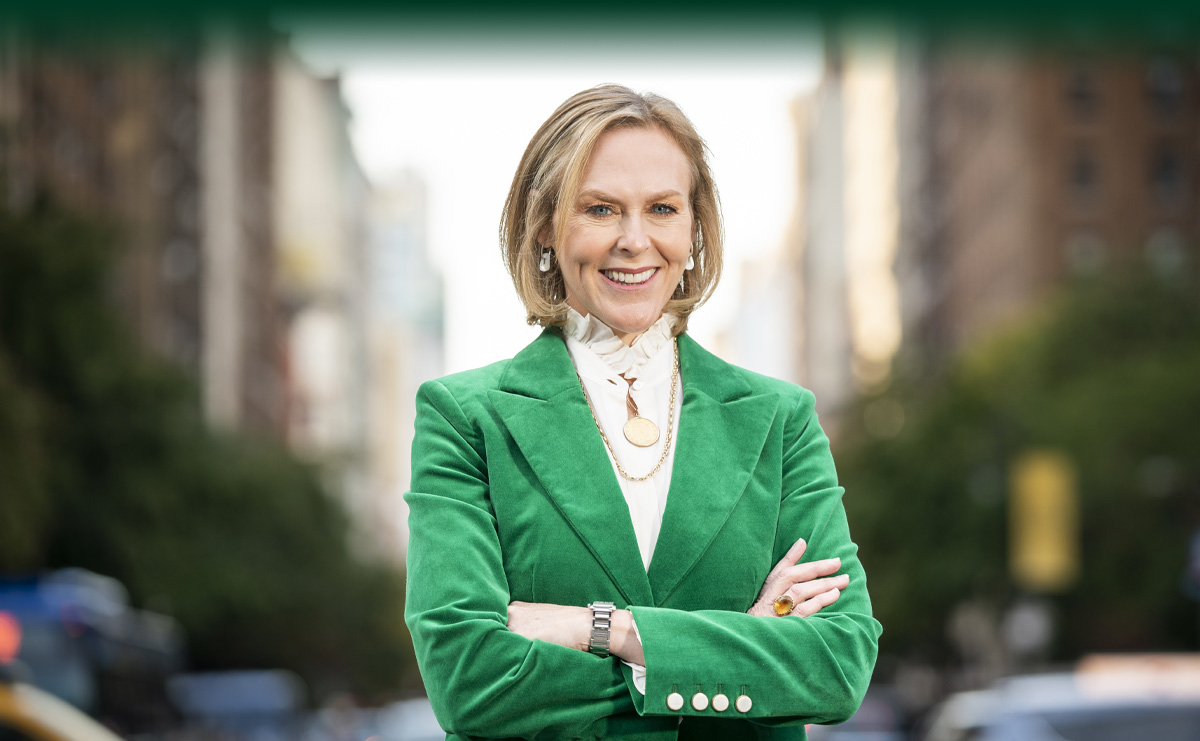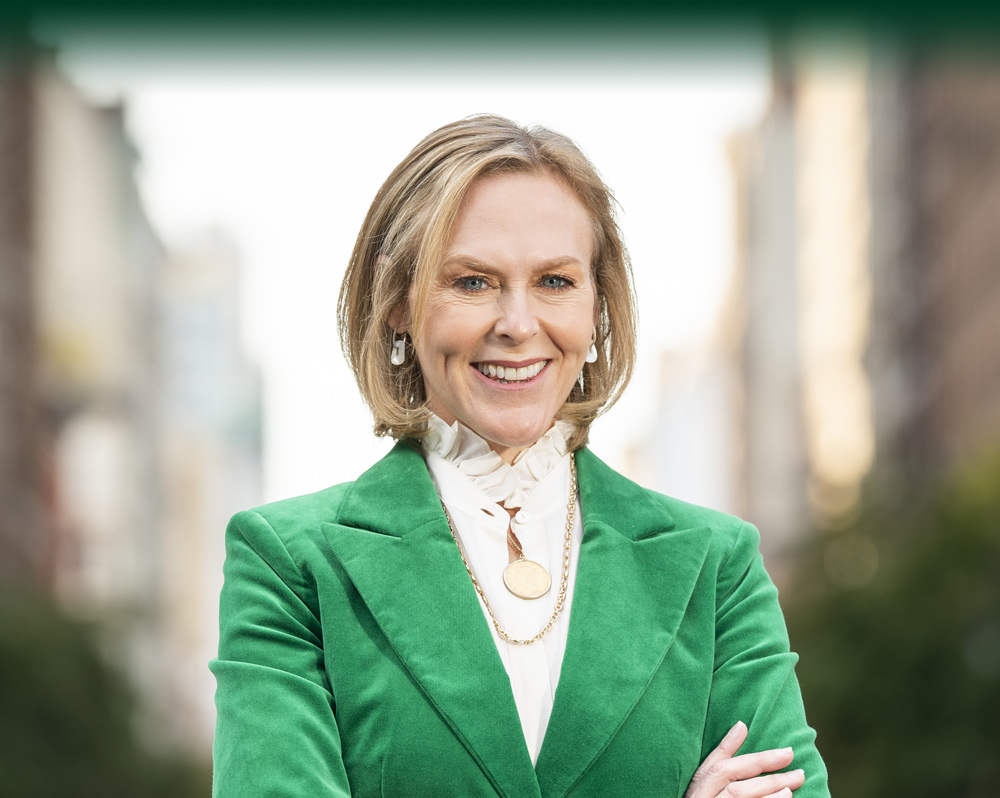Debbie Epstein Henry ’94
Leading the Conversation


Henry decided to start a brown bag lunch group for other lawyers interested in work-life issues. She emailed three local lawyers she had recently met, as well as three litigators at her firm, and asked them to forward her message to anyone who might be interested.
“I was a fifth-year associate and a fairly recent New York transplant. I barely knew anybody,” she said. “Within a couple of days, 150 people emailed me back. I knew I had struck a nerve.”
In July 1999, Henry hosted her first event at her law firm. Media stories on the workplace interest group in the Legal Intelligencer and NPR’s Morning Edition gave her a national platform. After running her first event, she knew she wanted to draw from her experiences as an attorney to build a new career as a consultant on women and workplace issues.
With a rapidly growing audience for these conversations, she founded what became DEH Consulting, Speaking, Writing, which focuses on careers, workplace dynamics, women’s issues, and the legal profession. Her network of 150 lawyers soon grew to more than 10,000.
In 2006, she approached Working Mother magazine about creating an offshoot of their popular Best Companies for Working Moms list that would highlight the best law firms for women. Together, they collaborated over a decade, developing benchmarks and reporting on trends involving women and work-life issues. They encouraged firms to foster a better workplace culture and provide benefits that would address caregiving needs most commonly faced by women, as well as support job retention and professional development.
At the same time, Henry was shaking up the legal field in other ways. In 2011, Henry co-founded Bliss Lawyers, a company hiring high-caliber lawyers to work on temporary engagements for in-house legal department and law firm clients. The company offered well-credentialed lawyers with less linear careers—particularly women who put legal work on hold to have children—a new, innovative way to thrive in the workplace.
“Bliss Lawyers was a disruptive model, and we made our mark on the profession,” she said. The company was ultimately acquired by Axiom, its largest competitor, in 2020.
Henry’s prodigious writing and advocacy have made her a thought leader in the field. She has written two bestselling books, runs a quarterly speaker series, and, recently, launched the podcast Inspiration Loves Company—all of which focus on women and workplace issues.
Through her consulting business, she encourages law firms, companies, and nonprofits to take responsibility and implement thoughtful changes that benefit all employees—not just women. For example, in addition to offering business development training to women struggling to earn a promotion, Henry encourages firms to evaluate their requirements for promotion and how they award business development credit.
“If I do my job right, I’m helping elevate the culture and creating an opportunity for everybody in the organization to thrive,” she said.
Henry’s interest in the law was sparked during her undergraduate years at Yale University, where she wrote her thesis on the psychological motivations and conflicts of criminal defense attorneys. Before law school, she interned with a criminal defense firm in New Haven, Conn., followed by spending two years as a paralegal with the Rackets Bureau of the Manhattan District Attorney’s Office. Upon graduation, she was tapped as one of two recent graduates to serve on the Law School’s Board of Trustees for a two-year term. Following graduation, she clerked for U.S. District Judge Jacob Mishler in the Eastern District of New York, at which point she became a mother to the first of her three sons. She then joined Patterson Belknap Webb & Tyler as a litigator, hoping a boutique firm would offer better work-life balance. That tension was still on her mind a year later when she moved with her husband to Philadelphia.
Henry has brought her expertise back to the Law School, co-founding the Women’s Leadership Network in 2017. The popular initiative hosts programming about women and diversity issues in the workplace, as well as networking events and mentoring opportunities to connect alumni with students. Last year, members funded the Women’s Leadership Network Scholarship, with the first scholarship awarded to Jara Jacobson ’22.
Henry’s business is still evolving, often mirroring her own career trajectory. When she first started public speaking, she had three young children and her work focused on the challenges of pursuing both the partner track and the “mommy track.” Today, Henry is more interested in issues surrounding workplace dynamics as well as women and ambition, power, and influence.
“Work-life [balance] is still an issue, but the broadening of topics is really heartening,” she said. “We expect parity in the profession and across industry, and we are more empowered to make that happen.”